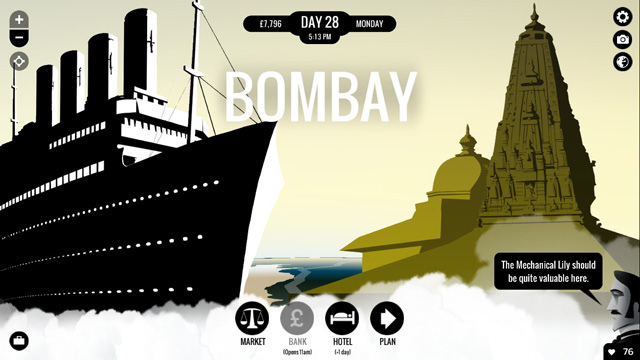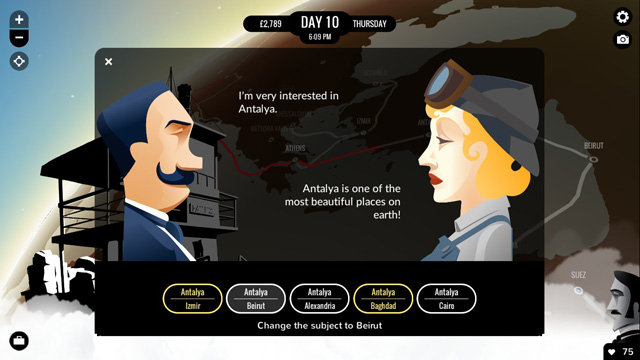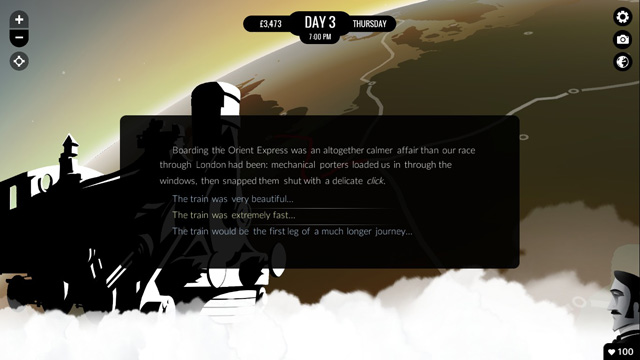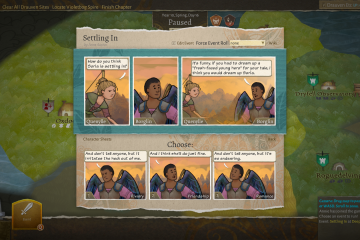
Story:
80 days is based on Jules Verne’s novel Around the World in Eighty days. In 1872, Phileas Fogg wagers with his friends of the Reform Club in London that he can circumnavigate the world in 80 days. Accompanied by his valet Jean Passepartout, Fogg embarks on the journey of a lifetime across seas and continents.
Playability: Smooth sailing across the skies
Although 80 days is an easy diversion to pick up, a tutorial through the mechanics of the game would have proven helpful. The first playthrough around the world will likely constitute for most gamers a learning by doing experience, and provide glimpses of the alternative steampunk reality in which the game takes place. 80 days is a fascinating world of hovercars, self-driving vehicles, war automatons and steam hydrofoils. The lore of the land is somewhat reminiscent of Philip Pullman’s Northern Lights, albeit a more light-hearted version.
Annoyance: The clock is ticking
80 days is a journey of discoveries. Each leg between cities provides opportunities for mini quests and sub stories. Only after several circumnavigations will a fuller social, economic, technological and political picture of the world gradually emerge. A self filling compendium of anecdotes collected and riddles solved would have been useful. There is a constant sense of urgency in 80 days as trains, ships or balloons seem to depart at the most inopportune times. Fortunately, Fogg and Passepartout will still be able to complete their voyage home even if they go into debt or spend more than eighty days travelling.
Beauty: Imagine the world
80 days is essentially a text based interactive adventure and thus relies to a large extent on one’s imagination. Media is limited to a basic user friendly interface, the occasional rumbling sounds of engines, waves and winds, and the stylised landmarks of the cities visited by Fogg and Passepartout. The unobtrusive soundtrack merely edges the duo forward, i.e. the player to read more text. The manuscript usually flows well and does not overwhelm the screen with endless sentences. A few more media bells and whistles (without resorting to CGI extreme shock and awe) would have elicited more oohs and aahs. The game could have used a broader selection of the beautiful illustrations by Jaume. After all, not everyone can write as well as Jules Verne.
The Old Video Gamer’s Prattle: Light reading explorations 7/10
It is difficult to go wrong with a novel as popular as Around the World in Eighty days. 80 days manages to capture the childhood excitement of exotic locales, travels at breakneck speeds, and meetings with strange new cultures. There are plenty of cities to discover, mysteries to unravel and plots to untwist. 80 days is an enjoyable light reading exercise with enough strategic choices to keep playing just that extra stretch across India or Canada or the Southern Atlantic. Voiced-over dialogues, character animations and sound effects would have added to the thrill of exploration.




